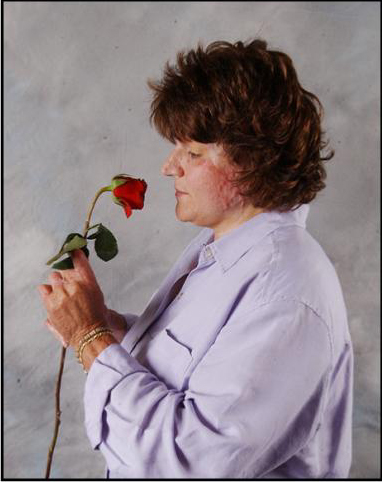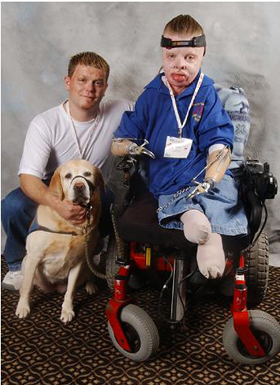Gino Russo scarred for life after Rhode Island nightclub fire
 Gina Russo and her boyfriend showed up at the Station Nightclub in West Warwick, R.I., about 10:30 p.m. Feb. 20, 2003. They got only one drink apiece since they had plans for the next day.
Gina Russo and her boyfriend showed up at the Station Nightclub in West Warwick, R.I., about 10:30 p.m. Feb. 20, 2003. They got only one drink apiece since they had plans for the next day.
The band Great White came onstage, and lead singer Jack Russell began the first song. Right on cue, the pyrotechnics display launched sparks near the back wall. The place was packed, but Russo and her boyfriend were right up front, swaying with the music.
Then Russo noticed something was wrong. "You could see at the base of the fireworks something wasn't quite right. We tried to get out the fire exit that was maybe three steps from where we were standing," Russo remembered, "but it was blocked by a bouncer. He wouldn't let us out the door. He told us it was club policy that the door was for the band only."
Not wanting to argue, the couple started pushing through the crowd, trying to get to the front door. Everyone kept dancing. Jack Russell kept singing, but he started looking around, sensing something was wrong. Then the ceiling caught fire.
"The crowd became an instant stampede," Russo said, "like on the animal shows, animals stampeding." Her boyfriend pushed her, thrusting her forward and yelled, 'Go!' She got to the door but was forced into an alcove, and didn't make it outside. She looked back and saw what looked like black rain falling from the ceiling, heads on fire, people on fire.
In that moment, she accepted that she was going to die.
She couldn't believe it was now, in these circumstances, but she came to terms with it. She sent out prayers that her two young sons would have a good life, and she hoped they would forgive her for dying this way. Then she blacked out.
Eleven weeks later she woke up in a hospital. Her boyfriend didn't make it out of the fire.
The experience changed her outlook on life.
"Don't sweat the small stuff," she said in an interview two years later. "Don't take anything for granted. The money doesn't matter. The status doesn't matter. It's my family and being there with them, and being able to live a good life."
Jim Edwards, Jr., barely survived West Pharmaceuticals fire in Kinston
 Jim Edwards Jr. was working on a rubber mixer Jan. 29, 2003, at West Pharmaceuticals in Kinston. There was a slight haze of chemical dust in the air that day, more than normal.
Jim Edwards Jr. was working on a rubber mixer Jan. 29, 2003, at West Pharmaceuticals in Kinston. There was a slight haze of chemical dust in the air that day, more than normal.
A spark, maybe from a fluorescent light fixture, ignited the suspended dust. Edwards watched in horror as the floor around him was blown away. He crawled up to the third floor, trying to get someone's attention. The fire was only 35 feet away. Someone tried to climb up. Then they got a ladder close.
The minutes ticked away.
"I was 45 minutes up there," he said, "getting barbecued."
All the clothes below his chest were either burned away or sucked away by a massive backdraft that swept through the building. He remembers getting in an ambulance, a pretty blonde doctor talking to him, then nothing for three months.
At the burn center, a massive infection invaded his body, his blood pressure dropped and he hung between life and death for three days. The blood couldn't get enough oxygen to his optic nerve and it withered. When he woke up he was blind.
His body, in one position for three months, was locked into place, as if he had been cast in iron.
Through it all, his father James "Red" Edwards, was there, hoping and praying for his only son. He helped with the rehabilitation, bringing his son water to wet his lips, supporting him as he hobbled down hospital corridors. He has learned as much as his son about the value of life.
"Take every day as the last and make the most of it," he said, "your relationships, people, make sure you leave them like you want to leave them, because you may leave them for the last time."
